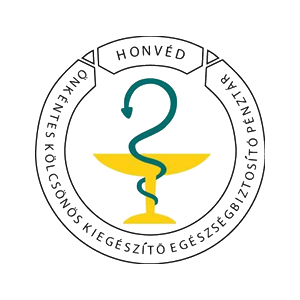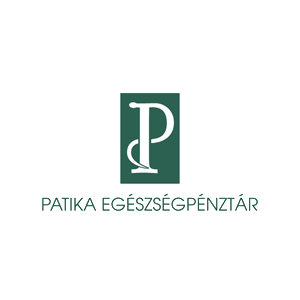What is Internal Medicine?
Internal medicine is one of the most critical and diverse branches of medical science, and one of the most necessary, as millions of Hungarians seek the assistance of internal medicine specialists every year. The Oktogon Medical Center offers quality and expertise through a modern and well-equipped private internal medicine practice that meets 21st-century standards, not to mention our exceptionally skilled internal medicine specialists.
A vital aspect of internal medicine is that it deals with a variety of organ systems, requiring the practicing physician to be versatile. Several specialized fields have branched out from internal medicine, including cardiology, which deals with the heart; pulmonology, which focuses on the lungs; hematology, which examines blood; gastroenterology, which treats the digestive system; and endocrinology, which addresses disorders of endocrine glands.
Internal medicine forms the foundation for these aforementioned areas. An internist can identify the underlying causes of various complaints and involve physicians from other specialties and their unique expertise in the treatment. In their work, internists primarily focus on the condition and functioning of internal organs, conducting examinations and making diagnoses accordingly.
When to Consult an Internist?
There are numerous complaints that require an internal medicine evaluation.

- Abdominal or stomach pain, cramps: These symptoms can indicate diseases of the stomach, intestines, pancreas, or gallbladder. Therefore, for severe or prolonged pain, one of the best actions is to visit an internal medicine specialist.
- Changed bowel habits; vomiting, nausea: Whenever the cause of diarrhea, constipation, or vomiting is unclear or the symptoms are persistent, it is advisable to consult an internist, as there might be more serious underlying conditions.
- Loss of appetite, sudden weight loss or weight gain.
- Persistent feelings of fatigue or exhaustion.
- Bloating, reflux: These are also digestive disorders, including the excess of gases or stomach acid.
- Symptoms of High or Low Blood Pressure Chest pain, pressure:
- An internist can identify cardiovascular diseases and recommend appropriate treatments. They are also equipped to examine the lungs, for instance in cases of difficulty breathing. If you experience severe chest pain, primarily on the left side, along with numbness, seek medical attention immediately.
- Feverish or inflammatory conditions.
Main Areas of Internal Medicine
Internal medicine can be divided into various subfields and specializations:
- Cardiology: This area focuses on cardiovascular diseases, encompassing the diagnosis and treatment of heart diseases, atherosclerosis, high blood pressure, and other heart-related issues.
- Gastroenterology: This specialty deals with disorders related to the gastrointestinal tract, such as stomach ulcers, colitis, and liver diseases.
- Pulmonology: This field focuses on diseases of the respiratory system, including asthma, chronic obstructive pulmonary disease (COPD), and other respiratory disorders.
- Endocrinology: This specialty deals with the endocrine system, focusing on hormones and their effects, including conditions like diabetes, thyroid issues, and hormonal imbalances.
- Rheumatology: This field specializes in joint and musculoskeletal diseases, diagnosing and treating conditions such as rheumatoid arthritis, osteoarthritis, and other rheumatic problems.
- Hematology: This area focuses on the blood-forming system, blood diseases, and anemia.
- Infectology: This branch deals with infections and infectious diseases and their management.
- Diabetology: This specialty is dedicated to the diagnosis and treatment of diabetes mellitus.
The Process of an Internal Medicine Examination
An internist requires a detailed overview and extensive information to assess the patient's overall condition and identify the causes of specific complaints. Knowledge of individual and family medical histories is particularly important, along with a series of physical and instrumental examinations, and the request for additional tests or specialist consultations.

- Taking the Medical History: The first step is a detailed exploration of the patient's (and, if necessary, the family’s) medical history, including a review of previous medical records. The physician documents all relevant information from the onset of the illness to the current complaints. This step allows the doctor to understand the patient's health background and identify potential genetic or lifestyle-related risk factors.
- Physical Examination: The next step is a thorough physical examination. During this process, the specialist examines various parts of the patient's body. This includes assessing nutritional status, skin and mucous membrane color, temperature, palpating the thyroid and lymph nodes, and using percussion to gather important information about the abdominal and thoracic cavities.
- Examination of the Musculoskeletal System and the Nervous System: In this phase, the musculoskeletal system and the nervous system are evaluated. Examination of the joints, muscles, and nerve conduction helps identify potential musculoskeletal or neurological problems.
An internist has a variety of tools at their disposal to make the most accurate diagnosis possible.
- Laboratory Tests: If necessary, the physician may order laboratory tests, which involve analyzing samples from blood, urine, or other bodily fluids to gather information about the body's functions.
- Imaging and Other Instrumental Diagnostic Procedures: The internist frequently uses imaging techniques such as X-rays, ultrasound, or CT scans. These methods provide detailed images of the internal organs, aiding in the detection of abnormalities and diseases. Additionally, ECG exams to assess heart function and blood pressure measurements are commonly used and very helpful.
- Specialist Consultations: In some cases, it may be essential to involve specialists from other fields, including those focused on the subfields mentioned earlier, to obtain their expert opinion.
The thorough and detailed procedures employed during an internal medicine examination allow for early detection of diseases and effective treatment. Every step aims to fully understand the patient’s condition and determine the most appropriate therapeutic solutions.
Expertise, Empathy, and Knowledge: Internal Medicine at Oktogon Medical Center
Our specialists are esteemed professionals in their field, who care for both the physical and mental well-being of our patients. Their knowledge is up-to-date and continually refreshed, and their experience has been gained in medical workshops at hospitals, clinics, and universities.
Our private clinic is a modern, well-equipped, and high-quality facility designed to ensure the comfort of our patients and support the successful work of our doctors. We are capable of treating a wide variety of diseases. Visit our private practice!
If you feel that you need an internal medicine specialist, don't hesitate to contact us and book an appointment by clicking the button below!
![]() Book an appointment
Book an appointment














